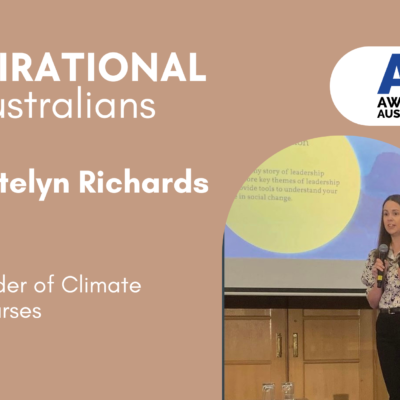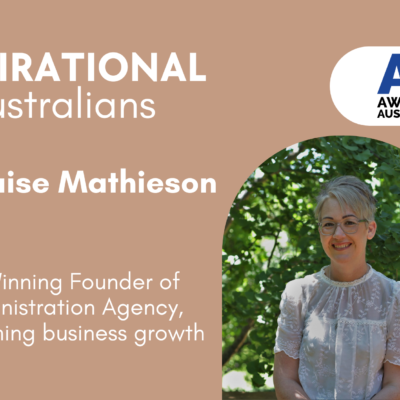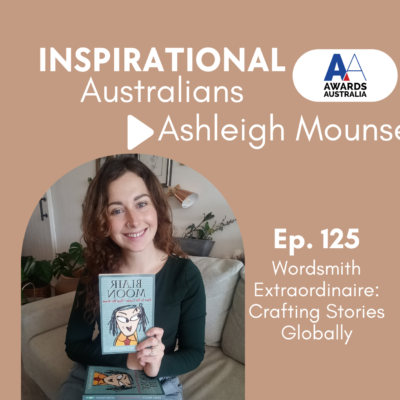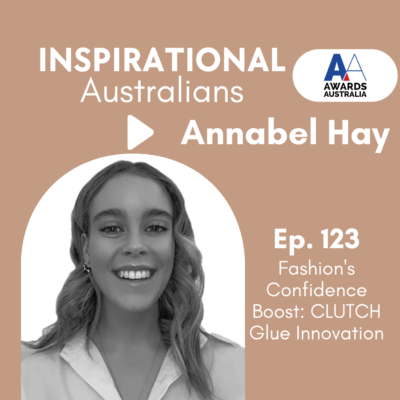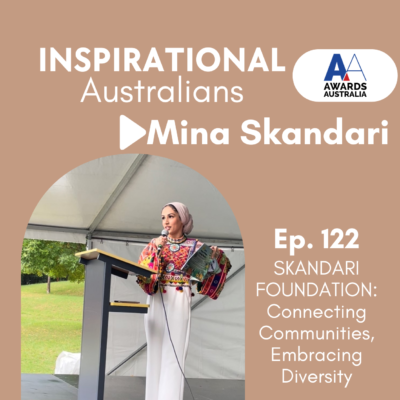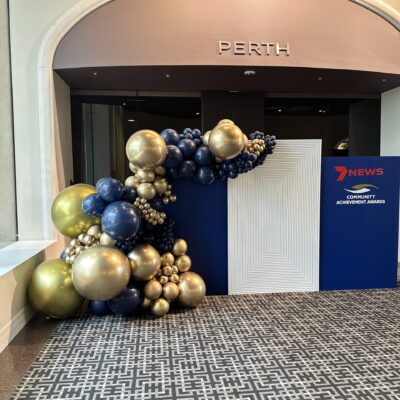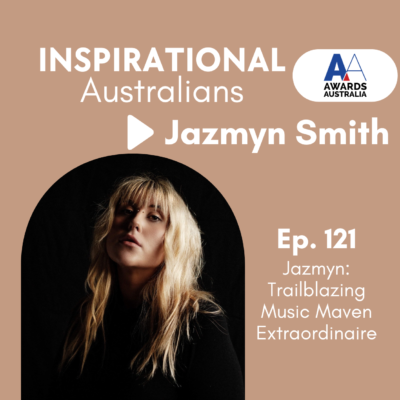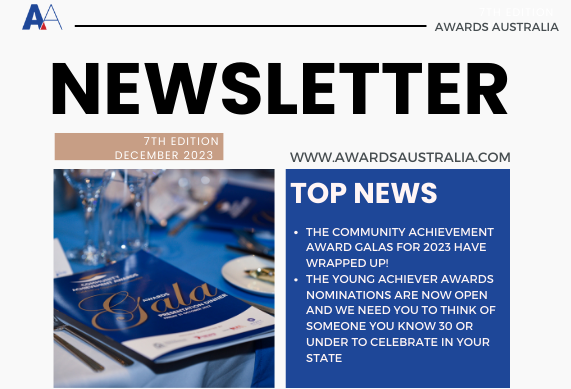In this week’s episode, Josh is talking to Mike who won the Premiers 2015 South Australian Young Achiever Awards.
Mike is a writer, filmmaker and global adventurer who has spent the past decade capturing and sharing stories that could move people to chase a happier, more connected life that would better our world.
From city streets and remote tribal areas, to warzones and refugee camps, from the Ganges to Wall Street to Beijing, the people and the socio-political issues he explores have the power to change our world, and they already are. Mike’s work has reached more than 126 million people from every country on Earth, through his organisation The Happiest.
In this episode:
- Mike talks about his incredible journey and his passion that drives him
- Find out about what’s next for Mike and The Happiest Movement.
- Hear what winning the Award has done for Mike
Links
Connect with Mike on Facebook
Check out The Happiest website
Follow us on our Inspirational.Australians Instagram Page
Want to nominate someone? (It can take as little as 2 minutes to recognise someone making a difference)
Like some more information on Corporate Partnership?
TRANSCRIPT
Welcome to the Inspirational Australians podcast, where we chat to people, making a difference in their communities and in the lives of others. And here is your host for today. Josh Griffin
Josh
Welcome to the Inspirational Australians podcast stories of inspiring achievements and community contribution. I’m Josh Griffin from Awards Australia, a company that owns and operates award recognition programs right across Australia, together with corporate and non-profit partners, with the aim of showcasing those people that are making a difference every week, we’ll celebrate the good news stories of some of our award program finalists, winners, and nominees, to hear about their achievements and to share their stories and how we can be inspired and encouraged to know that Australia’s future is in good hands. Enjoy hearing these stories about inspirational Australians. And we would love it if you could subscribe, rate and review the podcast. We would really appreciate it. This is a new podcast, every rate, review and subscription really helps.
Welcome to the Inspirational Australians podcast. Today’s guest is a guy I know really well. We met back in 2015 through what was then called the Channel Nine Young Achieve Awards.
Josh
Mike Worsman was the Premier’s Young Achiever of the Year for South Australia back in 2015. And I was struck by Mike because we were similar in a lot of ways. We were in the same age. I think we’re about 27, 28. At that time, we were both Adelaide boys and now both of us are living in Melbourne. So we have a lot of similarities there, but I think that’s where some of the similarities end! Mike’s a writer and filmmaker and a global adventurer. He spent the last decade plus, capturing and sharing stories that could move people to chase a happier, more connected life. And that would better our world. He has gone straight into remote tribal areas, to war zones, refugee camps and the Gandes to Wall Street, to Beijing, to highlight people and the socio-political issues.
Josh
Each photo has had the power to change our world. And already Mike’s work has reached more than 126 million people from every country on earth, through his organization, ‘The Happiest’. And if you’re on Facebook, you need to check out The Happiest Movement on Facebook, it’s basically a build your news feed with some positivity and I’m actually really excited to chat to Mike again, having spoken a little bit, so like to officially welcome to the podcast, Mike Worsman. How are you doing Mike?
Mike
Yeah. Great. Yeah, just fresh off a run. Um, you know, it’s something I do sort of just to, you know, get fresh in the mind every morning. I don’t have music in my ears or anything like that, I really use it as a way, you know, someone that’s self-employed, largely working from home. Um, as, I guess everyone is at the moment with COVID, um, just find it’s a great way to energize myself and clear my mind and, and work out, you know, I guess how I can best plan out my day and get the most out of every minute.
Josh
Yeah, I agree. Mike, actually, I was out for a walk this morning as well, not a run. I like to just walk, but I do find that it is such a nice way to start off the morning and, um, kind of helps you get into that, I guess, positive mindset and trying to achieve something in the day.
Mike
Yeah, absolutely. I think in terms of happiness, I mean, we all know that exercise obviously is one of the things that’s really proven to make us happier. You know, they say the best cure for, for depression, anxiety is actually just spending 15 minutes exercising. So yeah, just a handy little step to know
Josh
That is cool. Well, speaking of happiness as you know, I mentioned in the intro, 2015 is when we met. I think your journey is, um, started back earlier. According to my notes, my research from 2013, when you had a ‘Million Smiles’, the project, can you kind of cast your mind back to, uh, you know, what drove you to kind of focus on happiness?
Mike
Yeah. Look, it probably begins even a little bit before 2013. Um, a couple of years prior, um, like a guy I met at Uni who, who was studying journalism and filmmaking like me, we both sort of had these separate careers in the media where, you know, I’d sort of been a TV journalist and worked in PR for SA Health and he’d sort of, you know, worked in, uh, for the ABC in video editing. And we decided that, you know, I guess everything that we’re bombarded with every night on the news, um, you know, it can become very overwhelming and it wasn’t really an accurate representation of society. Um, you know, there’s obviously most people are doing good every day. Yet if you switch on the news or open your newspaper, um, it’s a pretty gloomy sort of a situation that you find yourself in where you can’t really believe that there can be a better world.
And so, you know, we took it upon ourselves to start a new organization that was about sharing a more balanced view of the world. So like one really quick example of that might be, you know, we’re at war in Afghanistan, right at that point in time and on the news media, the mainstream media, was sort of going okay, well, we’ve killed this many baddies and this is how many of us have died. And that was sort of the extent. And, you know, it was just about that this body cuunt, this gruesome sort of, um, situation that was unfolding. What we looked at was okay, what was actually happening on the ground. And so we’d interview, you know, Australian soldiers who were, you know, building new schools and they would recount stories of young girls actually getting an education for the first time.
So that was sort of our philosophy. And you know, I guess, um, I learned a lot and we were sort of pushing against the juggernaut of the media for, for a few years there. And then I did a story for mental health week. Um, and it really just sort of struck me. I interviewed the then health minister and you know, started digging around for some statistics and, you know, it was pretty startling.
I mean, by 2020, which is, I guess, where we are now that we’re predicting that depression would be the leading cause of disease in the world. Um, and that suicide numbers from that point when I wrote the story, which is 2012 to now, would double. So back then there was a suicide every 40 seconds right now, if they are correct, I haven’t had, uh, an opportunity to look at the 2020 stats that are predicting that it would be every 20 seconds someone choosing to leave this world because they are so unhappy with their current situation. Um, you know, and obviously mental health issues are a little bit more complex than that. But that really sort of slapped me in the face. And I thought, well, look, you know, I’ve been covering inspiring stories for a number of years.
So I went on my own little journey overseas to some of the poorest countries on earth, to go well, okay. We think in the West that, you know, materialism or, or having enough, or if I’ve got a good enough education, you know, somehow, or if I’ve got 2.4 kids, which is sort of the average that we’re meant to have, or if I’ve got two cute little dogs, or if I’ve got lots of Instagram followers that somehow that will make me happy and look, it’s not all bad. I mean, certainly, you know, we’re sitting here on our nice computers and, and those sorts of tools can be very useful. And I’ve got a very expensive hobby, which is filmmaking. But at the end of the day, um, you know, it’s, it’s, it’s sort of being able to sit with yourself and your situation and going, you know, I have enough and therefore I’m going to sort of pursue something greater than myself, um, that I think really drives a lot of happiness.
And even in these really poor communities overseas, um, you know, I went to this old abandoned dumpsite in Cambodia and this is the place that for one reason or another seemed to funnel all the disjointed people that had been orphans or, you know, their parents have been killed, you know, by the Khmer regime. And they were all welcomed to this place. And there was this such a strong feeling of community and connection and purpose because there were people helping one another. And I think that’s what we’re sort of here to do, is go well, look, I’ve sort of got to this level of comfort. Well now how, how can I help the rest of the world? And I think everyone in Australia and certainly, you know, in a large part of the world, um, these days can, can sort of come at it from that. I mean, you know, pursuing happiness is I always say like the ultimate luxury, right. You know, you don’t get to even think about that in most situations that I’ve seen people in, in the world. So yeah,
Josh
No, that’s such a good point. And it’s so interesting to think about to actually reflect on that thought. Um, you know, and a lot of people are uncomfortable talking about privilege and that kind of thing, but that is something that we can be truly thankful for, that we can sit back and worry about how are we going to try and make us happy. Um, it is a luxury, a hundred percent spot on, um, there’s so many photos I’ve seen from your work, like over the years that are just truly incredible photos. And how do you know? And that, this is a weird question. How do you know when you’re behind the camera, that what you’ve captured is, you know, is truly a great shot or great footage?
Mike
I think if it touches me. I mean I always say you can only capture, what’s sort of what’s in front of the camera, but like, you know, if, if, if I’m able to feel this person that’s in front of me and if I can try and capture that through the camera and that’s like the beauty of technology, right. Um, you know, I mean, especially video I think gives you a whole other edge. Um, you know, you can really feel someone’s, sort of energy through, through a camera. Photos sometimes are a little bit more difficult, but, um, you know, especially when you’re trying to be in these situations and be very present in the situation with those people, it can be a challenge at times, but you know, for me, I, I think it’s about, yeah, like if, if something’s moved me, I always think I’m a pretty regular guy, to be honest, like, you know, I’ve, I’ve, I’ve played and coached footy.
And, um, you know, I play a game of Scrabble with my mum when I’m visiting her and I also enjoy a beer with my mates. Like I’m, I’m not very different than most people. The only difference is that I’ve actually liked taking that huge risk to sort of step away from the comfy nine to five and actually put my money where my mouth is, so to speak in pursuing my dreams or what I felt was really needed in the world. So I’m not, I don’t consider myself different at all in, in that sense. And, um, yeah, I mean, I think people always think, Oh, if you’re someone that’s won an award or you’re doing this in the world that, you know, you somehow like different, but you just not, like I’m a very ordinary bloke.
Josh
That’s a good point to make because the Young Achievers Awards program that we run and we love so much, it’s truly not just about recognizing and rewarding the people who are doing the most incredible, unbelievable, you know, famous people it’s about everyday people just doing great things, following their dreams and making an impact. So that’s why I think, um, yeah, what you said is great, cause you’re a good example of that, Mike, um, just kind of following your dreams and the work you’re doing, which you just love doing. It’s actually enriching the lives of other people.
Mike
Yeah. And I think we all, we all can, I mean, you know, like COVID has been such an interesting time, I think for me to reconnect with actually some of these people around the world that I’d of interviewed in my travels and again, thanks to these times I think technology can obviously be used for good or for bad. But maybe through COVID, we’re all learning to use it as maybe it was actually meant to be used, which is to increase connection, not sort of, you know, shut us off from the world. So I’ve reconnected with this guy who’d invited me to come and make a documentary in his Massai village in the bottom of Mount Kilimanjaro in the middle of nowhere, um, you know, and I was really interested to learn about how they were coping with COVID and, you knowwe think that all we’ve gone back into lockdown here and we are all going “woe is my life” and “I’m really upset at the fact that I can’t go back to work”.
The Massai’s problem is that they are pastoralists. So they only rely on selling cattle or goats and they milk their cows every morning. Um, you know, they drink milk for breakfast then for lunch, they’ll have some some maize flour with that milk. And so they’re, they’re pretty reliant on that, but they haven’t been able to sell their cows cause the cattle markets have actually shut over there, um, or their goats. And so instead of being able to sort of sell the odd cow and buy that maize flour, which makes up, you know, the majority of their diet, um, they’re, well, they’re really just starving. And so like, like literally or a friend in Afghanistan, I visited Kabul, I think the year after I won there was I think it was 2016 and, and, you know, talking to a friend over there, he goes, well, you know, like we just can’t afford to have the virus come here because people will just die.
You know, we don’t have a healthcare system, you know, obviously he was referring to places like Australia, like yours, you know, where you actually stand any chance of surviving if, if you get COVID. So, I think that, you know, gratitude’s obviously something that’s really well known in terms of creating happier individuals or happier society and like, yeah, I mean that, that’s the, that’s the foundations of my happiness, because if I’m grateful for what I have, then I don’t need as much stuff. And then I can also actually give, cause like, if I’m like, I’m cool with what I’ve got, um, you know, I’ve got a job which pays me enough. Um, I’ll just give whatever I can to the world, in whatever way I think the world needs, or places that the world needs it. So, yeah, I think COVID has been a great wake up call. I think I’ve probably been happier in a lot of ways during COVID just due to this like confrontation of gratitude that I’ve felt by connecting with some of these people.
Josh
Yeah. It is interesting to think about the positives that have come out of this kind of situation, but I wanted to quickly touch on that. You mentioned being in Afghanistan in 2016, and I think the timing of when you were there was actually when we were holding our Young Achiever Awards Gala dinner presentation. So that’s the year after you won. And we had invited you to come to the event and do a bit of a speech as the previous winner and, uh, be there to kind of share some of those new experiences with our young achievers.
Mike
Yeah. Yeah. I was just like I will snub you guys off and I’ll thought I’d go to Afghanistan, you know? Yeah. [laugh]
Josh
I remember emailing you the invite, as you were like, Oh, I’m going to be in Afghanistan. I couldn’t believe it to be honest, but you did a bit of a video call in for the event. And that was kind of cool. A lot of people were pretty, shocked when you said, Oh, I’m actually in Afghanistan, but that’s cool stuff that you’ve done, all that traveling. I think it’s important to share those stories of other people because it just helps us put things into perspective. It helps us to walk in someone else’s shoes, even if, just for a moment in our minds. And then we need that in your lives now. Well, I was just gonna say, speaking of, you know, the Young Achiever Awards and your involvement, not only have you, been a winner in the Awards, you’ve actually been on our judging panel over the last few years. It’s just been really cool. What’s that’s been like for you, was it a weird kind of transition, um, to be in the other side of things, or did that feel really natural?
Mike
It’s awesome because it’s, it’s, it’s effectively, you know, a very similar to my job, which is trying to find these really inspiring human beings to share the story of. So, you know, it was very natural. I love reading through all the nominations and the other thing that I actually found, which I was like, you know, you always wonder how robust the process is when you, when you’ve won an award and you go, Oh, Did I really deserve that? You know,
Mike
I really understand now, and actually like the robustness of your processes, which now I’ve sort of seen the inside of it. I was like, Oh geez, wow, this is actually a really difficult award to win. And, and it sort of made me feel, more proud again, that I guess I’d been, uh, you know, seen by this amazing group of judges. I mean, that I was worthy of that sort of title. So yeah, it’s actually, I mean, it’s hugely inspiring, just a great, you know sort of reminder that I’m not alone and we, as Changemakers are not alone in, in trying to create a better world. There’s, there’s just hundreds and thousands of people, you know, that are on that similar path that want to see a kinder, more loving, more inclusive, equal world. So it’s, it’s cool. I love it. I look forward to it every year.
Josh
That’s awesome. Well, you can’t get away from us now all the time when I ask you to speculate here, if you can kind of imagine now that you know, what the judging process is like, and, you know, the final stage of the judging for those who aren’t aware is I guess, everyone gets the nominations online. They get to review the online judging portal and to finish it all off after a couple of weeks of that, everyone gets together to discuss in person. So what do you reckon, you know, thinking about when you were a finalist and eventually the winner, what do you reckon they might have said about you?
Mike
Hopefully just that I was like really authentic, cause that’s one of the things I always sort of look at myself as well as going, okay, like what is the motivation behind why this person is doing this? I mean, is it so that they can get richer or is it so that they can write on their CV that they won an award or, or is it like literally just someone that’s driven by every sort of like ounce of their being to, to, um, you know, create whatever they have created. And I would hope that that’s what the judges said. And a few of the judges came up to me after and said that sort of, what seemed to have moved them is, is that I was just, just a regular sort of a guy that, had taken some pretty big risks in order to try and better our world and provide these stories that could, you know, maybe inspire one person or 10 or 126 million or whatever it’s been now.
So yeah, I think that that’s where it starts for me with, with how I would hope people look at me, but how I also sort of try and get to understand the people that are nominating is, is the real deep authenticity to that purpose that they’re sharing with us.
Josh
Yeah. And that’s so important regardless of the field anyone’s in, is being authentic. And I think hand in hand with that is empathy as well. Those two traits are just so important. And you know what, I think it actually kicked off a bit of a trend with the Awards Mike, because, you know, casting my own mind back to that judging day, um, whilst I’m not involved in the discussions, I’m there facilitating the process. And basically what I recall is that the previous few years, the overall Young Achiever Of The Year, a major winner had been someone like a scientist or an athlete who’d won an Olympic medal. And it was very much like there was this tangible achievement. You can almost pinpoint it to one, there was this one achievement and that’s what kind of elevated them. And for you, you know, hope this is making sense here, but I think it was almost more intangible.
It was the message. It was the philosophy that was really powerful. And the judges were saying that’s such a great message to promote in that someone who’s really, you know, I guess it’s not a scientist. Who’s, who’s made this research. It’s someone who’s got this powerful message of sharing happiness to help others have to be happy. And I think that was like, not sure if I’m explaining this correctly, it was a bit of a, a change in the way they’ve done things and opened their eyes to the fact that it was almost like a mental health thing. And I think we’ve seen that in the last few years coming to the forefront of people’s conversations. Um, yeah. So I think that was a really cool aspect.
Mike
Yeah, absolutely. I mean, I think that’s what people often talk about, you know, this sort of intersection that we should all be trying to focus on, which is where do our skills and our, our talents and our sort of, inner drive, where does that meet the great greatest needs that we see in the world? And that’s really, all I was doing is I see myself as a pretty reasonable storyteller. And, and how could that help to sort of, better the world. And obviously the media overwhelms us with this, this tragedy every day. And we can’t, you know, if you, if the core philosophy behind everything that I sort of do is if you can’t imagine something, you can’t create it. And so at the moment, you know, we can’t create this happier more equal society because we just don’t see it.
We just see the very worst of humanity, um, so often, but technology is changing and there’s some really cool trends and that’s sort of what I’ve, I guess the tangible side of probably what some people would have seen in my award nomination was, you know, you can see how many people you’ve reached these days. You can see, Oh, we’ve had these five really viral videos and 120 million people have seen them and 300,000 people have shared them and, and we’ve got X number of comments. And so it’s cool that you can have a slightly more tangible sort of a look at these things these days. But yeah, I mean, it’s, you know, it’s always going to be hard for a creative person at times to compete with a scientist that goes, well, you know, I’ve just found a cure for this.
Um, but is it going to solve maybe the, the deeper issues we’re seeing in the world, the one person, every 20 seconds that’s choosing to leave the world? Um, so yeah, I think that it’s cool that you guys have this really great mix, where you’re actually allowing scientists and sports people to meet with people working with refugees that meet with media people that, you know, so it’s, it’s really cool. I think Awards Australia, and obviously the Seven News Awards are a fantastic example of what we need to see more, which is collaboration bringing these different sort of minds, um, from different areas together. And that’s been another great lesson of COVID. It’s like, you know, I remember reading the other day that the world health organization is, is working with these like online gaming organizations to make sure that young people are getting the messages around about staying at home, getting tested, social isolating and that sort of stuff.
Mike
So, yeah, it’s cool. It’s, it’s amazing to imagine what we can all sort of achieve as, as one sort of humanity when we do work together. So yeah, I mean, but you guys are a great sort of like symbol of that and bringing people together.
Josh
Thanks, Mike that’s lovely of you to say that.
Mike
Well, you can pay me later. Right.
Josh
So, you’ve touched on it just then, and it’s kind of, um, nicely leading into, I wanted to ask you about, you know, talking about COVID, talking about how behind the camera and filming things, and that’s kind of what you do right now, or what are you working on in today’s climate?
Mike
Yeah, well, I guess like I’m a self employed filmmaker. That’s sort of what pays the bills so to speak, but I work solely with NGOs and charities. So obviously I can’t really do that at the moment because I can’t be in close proximity to people also, you know, the people I would normally be filming would be carers or like refugees who are being, you know, helped or whatever it might be. So not being able to have that human contact means I don’t have a job, so I haven’t been able to work since mid-March. I was sort of just finishing up my book at that point so that kept me occupied for maybe the first month or so. I am just finalizing the book, which has sort of been the last two and a half years of work. I guess you can’t make a film about everyone.
It’s very long job to go through the editing process for all these people that I’ve interviewed across the world. But this book is, I guess a great compilation of that. I mean, the first sort of real stranger that read it was this random lady in France. It was one of our followers and we put a call out to say, who wants to read it? And, um, you know, she said it made her feel deeply human and connected. And I guess that was verification that the book was what it was meant to be. So yeah, really excited by seeing where that, that sort of goes next. Um, you know, I guess I’ve got to shorten the word count, that’s the thing I’m working on at the moment. That was the feedback from the publishers.
Josh
Yeah, yeah, sure. I think there’s a lot of things that I never realized that about books. Just write it, and then there you go. It’s so many steps.
Mike
Yeah. Yeah. It’s sort of like a two year process. They say that if you’re with one of the big publishers, which I guess I’m hoping be, you know, if they picked it up today and they said, yep, we’re signing you. It might be two years before it actually hits the shelf. So yeah, there’s, there’s real anticipation that you finish a book and the next day it’s on the shelf, but, um, yeah, it’s certainly a pretty drawn out process, but I guess if something’s worth doing which I really think that this and the feedback I’ve just got from this appraisal company has been fantastic. So yeah, really excited by that. Um, you know I guess you gotta be patient, you know, good things take time but it certainly isn’t just a matter of writing a book, unfortunately.
Josh
I know there’s a lot of barriers we’re facing at the moment and you are talking about COVID and now you’re saying you can’t do your normal work. Now if all of that stuff was removed, what would be your ideal project? You know, if you could work with anyone, there was no constraints, what would you want to work on?
Mike
That’s I guess what I’ve been doing for the last 10 years. Cause like I say, I probably spend like maybe 10 to 20% of my time making money. So 80 to 90% is sort of on whatever I want, which has been, I guess, The Happiest, or what was called a Million Smiles when I won the Award. And so I guess like, you know, that’s really gripped me for a very long time. So writing this book has been very interesting because you know, some of the big themes and the big barriers to happiness that I’ve sort of explored, pushed me to maybe working in a more concentrated area, but I guess probably writing and sharing stories is still always going to be a big part of my life. I really want to, and I’ve got time that I can give to people and I think pretty decent skills that I can offer organizations.
So I’ve really wanted to go to Antarctica, but with a purpose. Whether it’s going down there with Greenpeace to, to shoot something about climate change, you know, climate changes is something that, I mean, we’re just stuffed if we don’t do something the world’s going to be in, I believe a terrible place by the time my kids are my age. I don’t have kids yet, but you know, they may be on the land in a few years’ time and I absolutely fear for their future. If we don’t get together and stop the greedy few of the world destroying it for, for the many, I think whilst I’m not a climate activist, working with the climate organization, I do certainly go to a lot of the marches and I think that’s, that’s going to be the crunch point.
COVID is a great example, I think for me of going okay, well, you know, can the world actually come together and work together to solve a problem? Can we see beyond our borders? Can we see beyond our ego, beyond maybe what’s good for me or whatever it might be. And we’re seeing some of that. It’s certainly like a good prelude for, let’s say in 30 or 40 years when maybe the oceans really start to rise and start wiping out certain countries. Some countries that I’ve been to actually and those, you know, refugees have to go somewhere and then how does the world deal with that? And then when Manhattans underwater, well how the people of New York kind of deal with that. I think COVID is this sort of like, um, it’s like a trial run for what we might see in the years to come and I’m mostly seeing a fair bit of hope. I’m a real eternal optimist. I mean, it’s why I’m doing the work I’m doing. I think that there’s a pretty big crunch time where like we, the masses sort of need to go, actually, we’re not okay with people making huge amounts of money off of, I guess our future.
Josh
Well, I think we were saying that we’ve covered that people can change their habits and they can make those big drastic change their lifestyle. But at the moment it’s when they’re forced to the next step is, can we do that voluntarily for the better of our future? And I think, yeah, like you said, that’s really interesting to see in the future what what’s going to happen, and definitely, it’s a huge issue. And so yeah, we need as many brilliant people as we can work on it, I think,
Mike
Oh, for sure. I mean, you know, and that’s part of what you guys are doing is trying to, you know, shine a spotlight on people that are potential leaders of tomorrow. And that’s a huge importance in this society to not let those people just be kicked to the back for the face of Donald Trump or something like that on the news. It’s, it’s really important. I think what you guys are doing and hopefully, you know, for someone like me to be able to share those stories as well as is pretty critical.
Josh
Well, you’ve won a Young Achiever Award and you’ve been a judge. What would you say to any people out there who are, you know, whether they’re young people, themselves doing something that, uh, has potential to make a huge impact or maybe someone just knows of a young person, a family member, a friend, a colleague doing great things. What would you say to them in that, in terms of encouraging them to be part of the Young Achiever Awards?
Mike
Oh, I mean, it’s a fantastic opportunity, right? Like it’s an opportunity to have a spotlight on whatever it is that you’re doing. And, you know, I’m not someone that has ever actually applied for Awards. I sort of tend to get on and do the work, but it’s certainly something that can help a huge number of people that are in the background doing this fantastic stuff, it’s just helps them to, I guess leverage the popularity that you guys have. The 400, 500 people, the room, the media, and you just don’t know where that’s going to lead. It certainly is something that I always put in applications, say for these publishers at the moment is that I’ve won this award.
And I think it’s a great recognition that what you’re doing is important. And, and I think having seen the robustness of the judging process, like it, it makes it feel so much more worthwhile. Um, you know, because if you win this or if you’re even recognized, even if you’re a semifinalist or something, I mean, that’s huge because the people that you’re up against quite often have done phenomenal things. I would definitely just say, yeah, like go for it. I mean, if you’re really authentic and purpose driven, um, no matter what it is you’re doing, we’ll at least try and share it with as many people as possible. I mean, you’re at least gonna have myself as a judge and a couple of other judges rating your work and who knows what connections that might bring, let alone, if you win, then the connections that come out of that. So, yeah, it’s, it’s a fantastic opportunity that I couldn’t recommend highly enough.
Josh
That’s brilliant Mike. I know our listeners have enjoyed listening to hearing about you and your story, where can they connect with you online?
Mike
Yeah. Look, cause I’ve been writing this book for a couple of years I’ve been probably not been as focussed on the online stuff, but certainly Facebook’s the main place that I try and keep a little bit updated these days. It used to be a huge passion of mine to, to be doing a lot of this stuff, but like I say, I’ve just sort of been, you know, off-lining it for a couple of years, but certainly Facebook’s a great place or TheHappiest.com. That’s where the book is going to be directing people. So you can see all of our amazing videos on there and pre-order a copy of the book or, or just, you know, check it out. Um, you know, but Facebook or, or, you know, Facebook it’s called The Happiest Movement or the website www.happiest.com
We got that website luckily a little while ago and yeah, that that’s going to be the name of the book. So, check it out. There’s, there’s videos that, look, if you’re having a crap day, it’ll just turn everything around, it will put everything into perspective for you. And, um, I think that’s the biggest thing about happiness is the perspective. I mean, everything good and everything bad begins in our mind. And, um, you know, that’s, that’s the ultimate challenge is to sort of make sure that more good stuff’s going into your mind than bad and we can certainly help with that. So check out those links.
Josh
Sure. All it takes sometimes is a small thing to turn things around. We need things in our lives that help us to remember to smile. So Mike, thanks for taking the time today. It’s been great getting to catch up with you and chat to you and hear what’s been going on for you and about the progress of the book. Look forward to reading it eventually. Awesome. And yeah, I look forward to finally being able to connect back with you guys in person when we get the opportunity for sure. Mike, thanks so much. Legend. Thanks Mike. Bye.
Josh
Hope you enjoyed that interview with Mike – isn’t he an inspirational Australian. Don’t you think, let us know what you think? Join us each week as we showcase ordinary Australians, achieving extraordinary things. Do you know someone who is making a difference? Please contact us on uro Instagram page Inspirational dot Australians. Or go to the website www.australia.com and you can nominate them, help spread their story, share their message. Australia is a family owned Australian business. Our producer, Annette is my Mum and other podcast Host, Geoff is my Dad. We proudly aim to make a difference in the lives of Australians. We thank our corporate and not for profit partners for making our programs possible. Do you know a business that might like to know how to get involved, contact us. Please subscribe to our podcast so you won’t miss an episode. Please share this episode with your network – who doesn’t love to hear positive, good news story? We would also incredibly appreciate it if you could review and rate the podcast as well, I’d love to hear your thoughts too. Till next week, stay safe and remember…. Together, we make a difference.
Thanks for joining us today on the inspirational Australians podcast, we hope you enjoyed listening and are inspired by ordinary Australians, achieving extraordinary things. So it’s goodbye for another week. Remember together, we make a difference.




